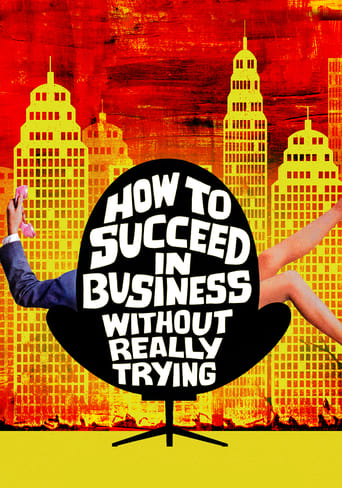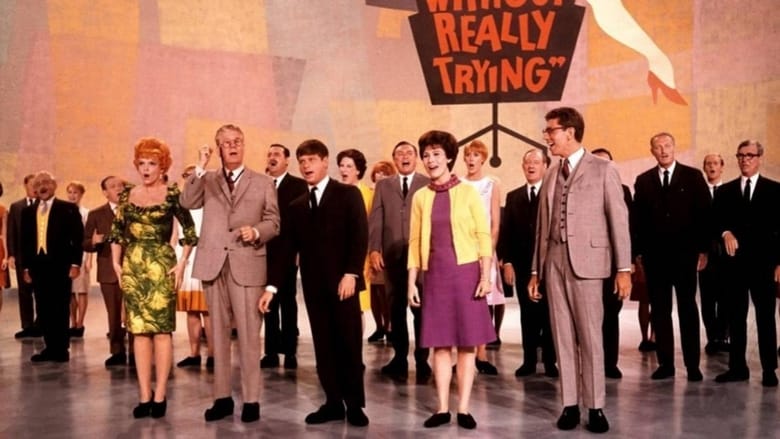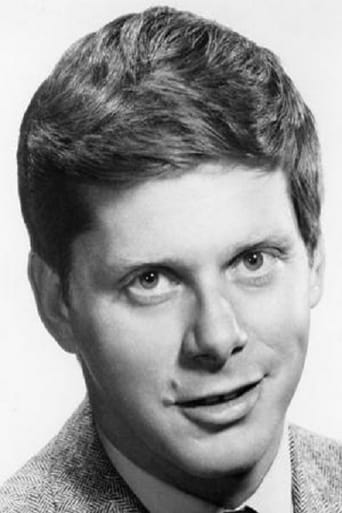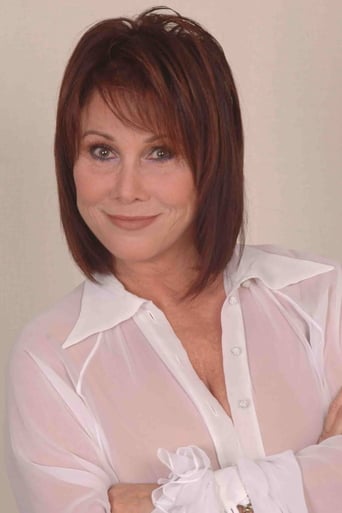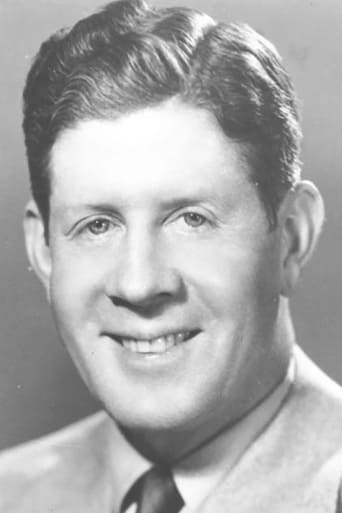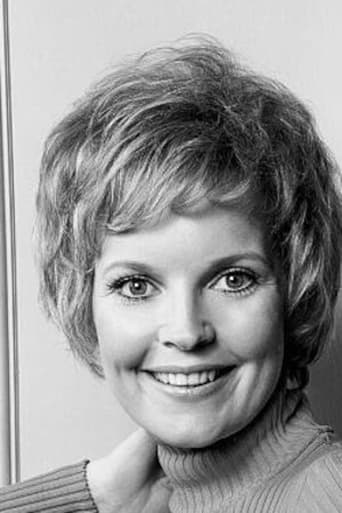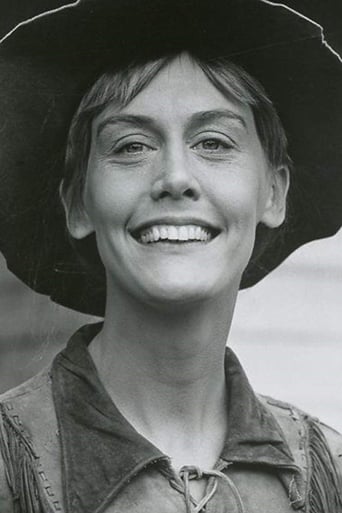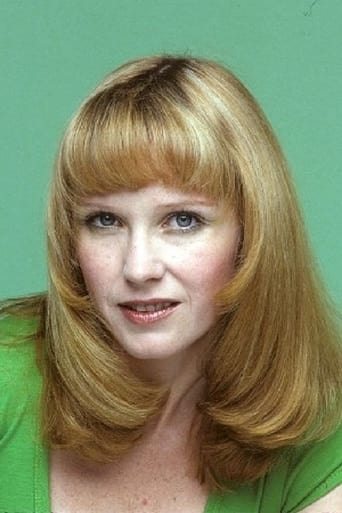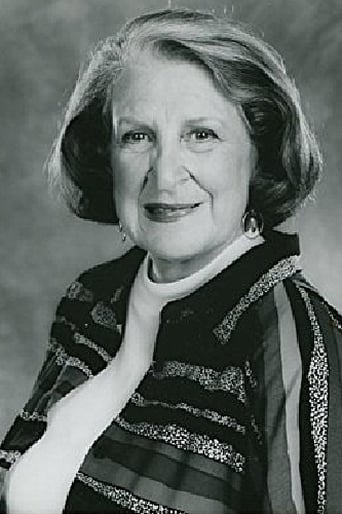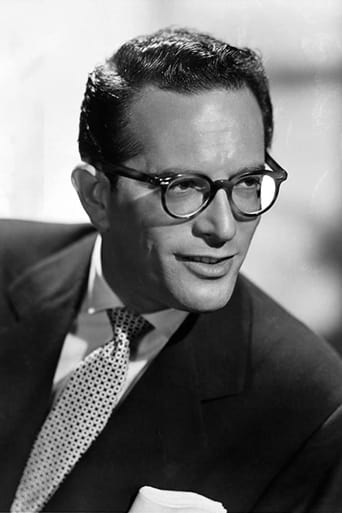A young but bright former window cleaner rises to the top of his company by following the advice of a book about ruthless advancement in business.


Similar titles
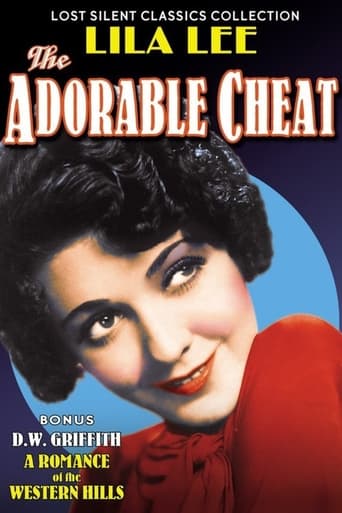
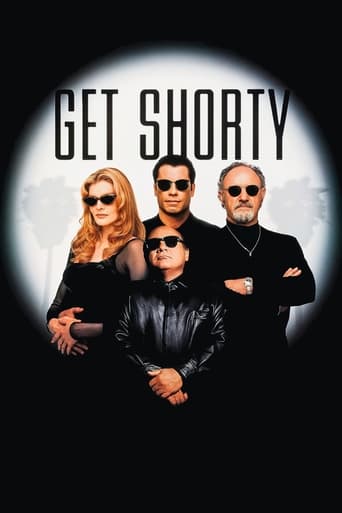
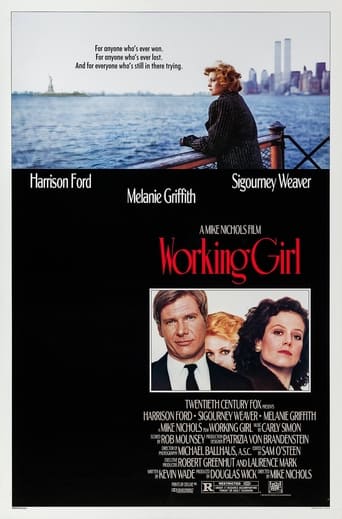
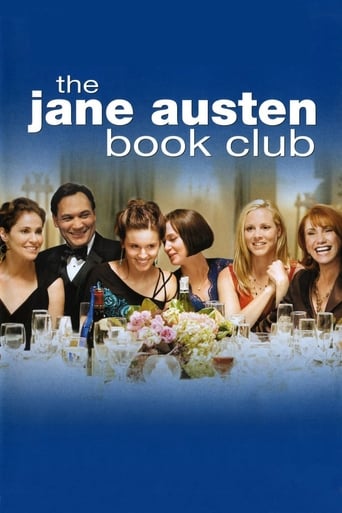
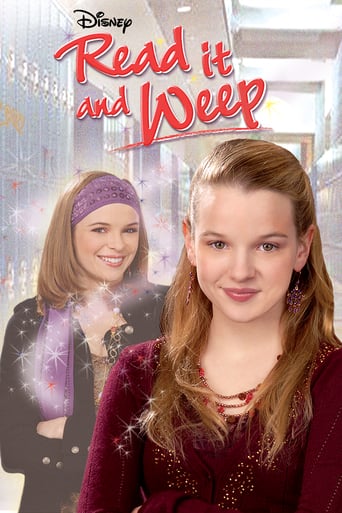
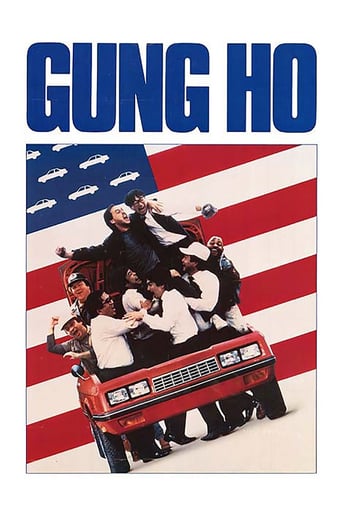
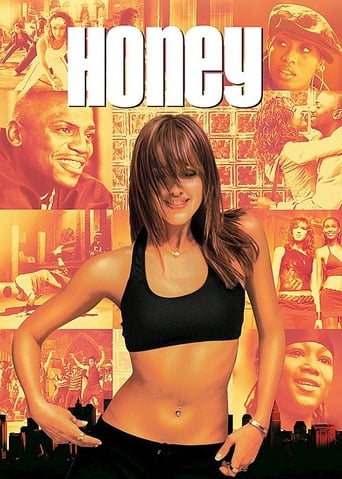
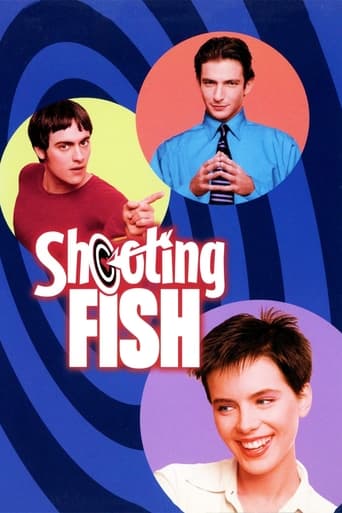
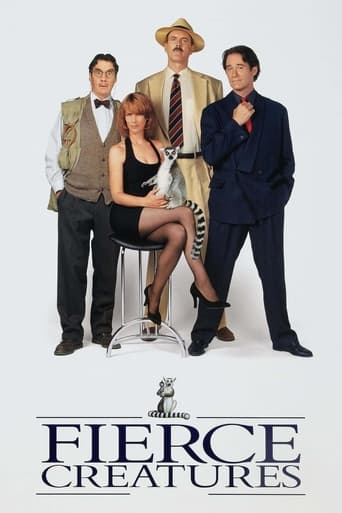
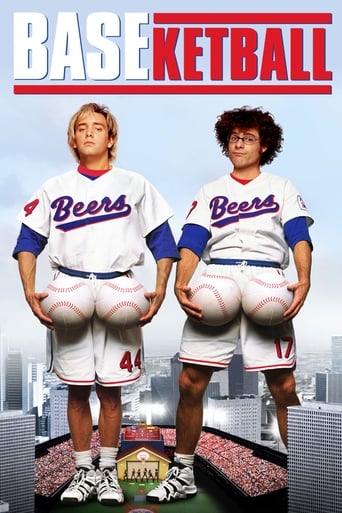
Reviews
The 1960s. Where we transitioned from a button down society to a vision of what people thought of as a modern society. I remember the tail end of this era as we transitioned into the 1970s, and this film gives a snapshot (in a hyper-reality sort of way) of that era. There were no personal computers, "mobile phones" were large things installed in cars, and email was a "top secret" thing.J. Pierpont Finch puts on a show of being the ideal employee, uttering flattery and showing what a great employee he is without actually being one (sort of).It was a familiar and yet alien time altogether. Most people had economic and society success on their minds, and were forward thinking only in terms of raking in new profits for services and products. Not a bad thing, but this film shows a kind of narrow mindedness that was extremely pervasive at the time. Conformity and corruption melded and split all at the same time, only to rejoin and split at the same time as business men (and women) rallied for one idea, then bailed on both idea and idea-man when it failed.Processing insurance forms, processing inventories, year end fiscal reports, reading marketing data and lab reports from R&D, are touched on, but the film is more about marketing yourself to succeed in your dream job. Finch will discover that true success comes from within.The hot secretary, the wholesome female worker, the gawky awkward hard worker, the yes men, the worry wart of the company, the bean counter, the company man, it's all here.It reminds me of the smells of office ink, carbon paper, hole punches, the clanging of typewriters, scratching of pencils, a time when no one but punks made crank phone calls, and certainly no one was hacking your email. This film will bring back those memories for those old (or young) enough to remember them. I can't say it's a period I remember with any fondness, though as a boy times were simpler then. There's a kind of Disney like quality or gloss to it. When you see Disney features or TV shows from the 1960s you get a kind of contemporary presentation where colors are slicker, styles of clothes, furniture and everything else are simpler, and yet everyone maintains a kind of casual form of 1950s etiquette while, strangely enough, at the same time being more formal (if that doesn't sound too paradoxical). And that's the kind of movie it is. We don't see any period specific trappings; no coke bottles, no Howdy Doody reruns, no references to the Space Program, no off handed references to the Soviet Union and whatever else was going on (though we do get an actor's portrayal of the Chief of State at the time).It's a window into a time when we could capture what life and styles were like in the middle of the 1960s, again presented in the hyper- reality that musicals offer, and from there we're launched into Finch's tail. The proverbial Campbell-Lucas "Hero's Journey"? In a "turned on its head" sort of way, sure.I guess what I'm saying is that in spite of everything I've written here, there isn't a whole lot to this movie. Boy meets girl, boy wants to get ahead, girl helps him, boy loses girl, and wins her back. How many movies are like that? Most of them, this one included.It's worth seeing once, or perhaps more than once if you're into the whole romantic comedy musical thing.Give it a shot.
Inexplicably, Robert Morse is ruinously cast in the lead role of what is an otherwise wonderful musical film. Smarmy, greasy, snotty, and any other number of descriptors can be stuck to his performance of a role which can and has been played so lovingly and better by less obvious actors. J Pierpont Finch is written as a sort of everyman who earnestly seeks employment and advancement in wide eyed but nice moves inspired by a self improvement tome with the film's title. Morse rather develops a brown-nosing loveless character who holds no more sympathy than does the clear douchebag of the musical. Pierpont should be a lovable kid who is working systems he doesn't necessarily fathom. He is not a jerk as written, but Morse just makes him gross. The musical itself is wonderful, and could be considered a classic. If the producers required more friendly performances, what they got instead from some was simplified and goofy indicating acting. I have seen stage versions which were so so much better when played with a genuine awe-shucks approach, which nailed it. This film needs redoing. I believe in you.
Next to Guys and Dolls, How To Succeed In Business Without Really Trying is Frank Loesser's best known and best loved musical. It did have the longest run of any of his shows, 1417 performances from 1961 to 1965.Though Hollywood was smart enough to retain Robert Morse and Rudy Vallee in their roles from Broadway, the only flaw with this film is that I do so wish Charles Nelson Reilly had repeated his role as Bud Frump, the rival to Robert Morse's J. Pierrepont Finch the upwardly mobile executive. It was the breakthrough part for Reilly in his career and it would have been nice had it been retained.Frank Loesser did it all in this show, book, music, and lyrics in a wonderful satire on the mores of the business world. How To Succeed is one of the few Broadway musicals that succeeds more on its book than anything else. The songs from this production are more functional than anything else, hits though some of them are. Unlike Guys and Dolls, Where's Charley, The Most Happy Fella there are no really stand alone ballads that could be enjoyed outside the context of the film or the stage show.Robert Morse never got a role like this one, the man who starts out as a window washer and moves up the corporate ladder through careful planning and a lot of nerve. He follows carefully the advice of a book with the title of the show. By the way in the film it is Morse's voice used in the narrative as the character reads from the book. On stage the prerecorded voice of Walter Cronkite was used.Rudy Vallee is the company president and Loesser took advantage of Vallee's unique personality and style with his songs and character. A lot of people who did not grow up with Rudy Vallee today would probably not get a lot of the inside humor. Vallee's big song is Grand Old Ivy and the humor of it would be lost today unless you knew that Vallee had recorded in his career such song hits as The Maine Stein Song, Betty Coed, and The Whiffenpoof Song, back when he was the reigning singer of the day.Though the jokes about Vallee are dated, the overall humor of How To Succeed was ahead of its times. Can you imagine had this musical premiered in the Reagan years? It would have been deified by all those motivational speakers that started to become popular then.For that reason How To Succeed In Business Without Really Trying is as fresh as when Frank Loesser put those first notes down for this wonderful show.
If the movie seems "dated" today (and it does), it's not just because the men wear tightly tailored narrow-collared gray suits, stovepipe trousers, and short haircuts. It's not the apricot carpets either. It seems dated because now the cynicism that informs it is taken for granted. It's presented as amusing and shocking but a modern audience is likely to shrug and say, "So what?" When I was in college, Macchiavelli, author of "The Prince," an essay on how to manipulate people in order to bend them to your will, was considered a bible of rotten conniving. I recently saw a paperback copy of "The Prince" with a cover illustration. The giant palm of your hand, with "the world" in it. (Read this book and you have the world in the palm of your hands -- get it?) Macchiavelli, the lying, greedy, underhanded suppurating scum, The Prince of Darkness, has become a modern hero.The movie's no longer as shocking as it was in the mid-1960s, but it's still very funny. J. Pierpont Finch (Robert Morse) is a window washer who happens upon a book, "How to Succeed in Business Without Really Trying." By simply following instructions he manages to worm his way into a huge company that manufactures and distributes wickets. He starts in the mail room and rises in a few days to Chairman of the Board through deception and skulduggery. In the last scene he is introduced to the President of the United States.What's a wicket, you ask. Nobody knows. The play doesn't show us any, or describe any, or tell us what they look like or what they do. The business is content-free. I am referring here to the "business" because that's the metaphor used in the story. You can substitute any other bureaucracy that fits the model if you like -- a hospital, a government. The point of the story is the same as that of Macchiavelli's book -- not wickets but power.I don't really want to get into the movie in detail because it would involve giving away too many amusing sight gags and bits of dialog. Much of the success is owed to the smoothly practiced cast. It looks like a filmed play in which the actors know their roles inside and out. Robert Morse is quite good. He's clever but he looks cute in a boyish way, with those gapped incisors. He uses his cuteness as a tool but convinces us that this is part of the character, not the actor. Now, don't get me wrong. I don't personally think he's cute or handsome. I don't know why the secretary, Michelle Lee, falls for him. Why, hell, on a bad day I'm ten times as handsome and cute as Robert Morse. Come to think of it, I'm not sure he's so "cute" after all. Furthermore, when he sings he sounds like Marlene Dietrich did in "Destry Rides Again" when she jiggles her speech organs between thumb and forefinger.The songs are usually sprightly, sometimes sweet, and the lyrics have to be heard to be fully appreciated. One falls a little flat -- The Brotherhood of Man. It works if taken to be meant as the baloney that it so obviously is. None of the tunes is really powerful, though "I Believe In You" is, marginally, a standard today. I'd have enjoyed seeing more vigor in the songs and dances. Bob Fosse would have done wonders with the numbers but then it would have turned the film upside down. The songs are only ancillary. The real story depends on plot and character and doesn't need too much music because it would be a distraction.There are some laugh-out-loud moments in it, and it's well worth seeing.
